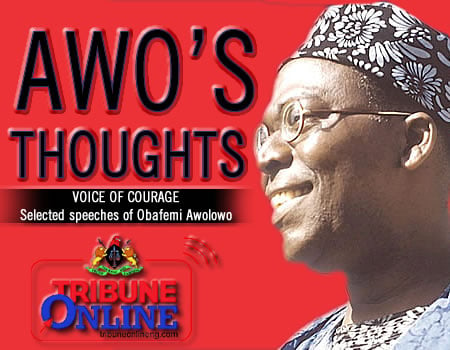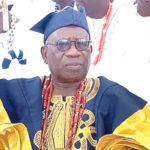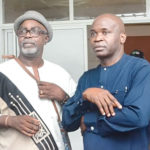CONTINUED FROM LAST WEEK
THE Alaafin of Oyo, realising from the Benin example the accretion of his power and prestige, which the application of ‘indirect rule’ to his domain would import, voluntarily requested the Governor-General to apply the system to his area. But in this case, the adoption of the system led to an eruption in Iseyin in which many people were killed. There were similar troubles in a few of the other places in Western and Midwestern Nigeria, where the system had either been imposed, or introduced at the express request of the Natural Rulers. But all the revolts were quickly and decisively crushed.
Lugard’s boldest experiment in ‘indirect rule’ was done in Eastern Nigeria. Save in a very few places, there were no Natural Rulers in Eastern Nigeria of the stature and jurisdiction of those in the North, West, or Midwest. But Lugard ‘manufactured’ them. A number of influential persons were made’ Natural Rulers’ by Warrant. These artificial ‘Natural Rulers’ were known as ‘Warrant Chiefs’. On his appointment, a Warrant Chief became the Paramount Chief for a specified area, enjoying the same authority and privileges and subject to the same limitations as a Natural Ruler in the North or West or Midwest. Even this daring innovation succeeded for well over a decade, before it suffered ignominy and shame. Lugard left Nigeria finally in 1918. Thereafter, the ‘indirect rule’ system, with various degrees of malpractice and readjustment, was on the forward march throughout the country, except Lagos. It did not suffer any tangible set-back until the early fifties.
Like the North, the South was divided into Provinces and Divisions. On amalgamation, the two Protectorates of Northern and Southern Nigeria retained their identities as Northern and Southern Provinces of Nigeria, with headquarters at Kaduna and Enugu. Lagos was detached from the former Colony and Protectorate of Southern Nigeria and placed under a Commissioner. Each of the two groups of Provinces was headed by a Lieutenant-Governor. These three heads were directly responsible to the Governor-General. The Residents were now immediately responsible to the Lieutenant-Governors, while the District Officers continued to be answerable to the Residents.
On I April 1939, there was a reorganisation, under which the Southern Provinces were divided into Western and Eastern Provinces with headquarters at Ibadan and Enugu. The title of the head of each of the three resulting groups of Provinces was changed to Chief Commissioner. The title of Governor-General was personal to Lord Lugard; and, until 1954, his successors in office bore the title of Governor.
Before 1914, British officials derived their authorities to govern the units of which Nigeria was composed from various Orders-in-Council and Royal Letters Patent. There was no council of any kind: whether deliberative, legislative, or executive. But in 1914, Lugard launched three separate councils. They were:
(1) Executive Council: This Council consisted of:
(i) Chief Secretary to the Government;
(ii) Lieutenant-Governors;
(iii) Attorney-General;
(iv) Treasurer;
(v) Commandant Nigeria Regiment; and
(vi) Director of the Medical and Sanitary Services as ex officio members, with the Governor-General as its President. The function of the Council was to advise the Governor-General in the discharge of his responsibilities for the whole of Nigeria. He was quite competent to accept or reject the Council’s advice. In the latter case, however, he would have to report to the Secretary of State, stating in full the reasons for his action.
(2) Nigerian Council: This was a deliberative and advisory Council for the whole of Nigeria, excluding Lagos. The purpose of this Council, according to Lugard himself, was to afford a public opportunity for the Governor-General, on the one hand ‘to give a summary of matters of interest during the past year to review and forecast ‘the position of trade and finance, and to emphasise and explain any questions of policy and legislation of importance’; and for the members of the Council, on the other hand, to express an opinion on the Governor-General’s statement. The Council comprised the members of the Executive Council, Senior Residents, and a number of unofficial members (with a minority of African members of Southern Nigeria origin only) nominated by the Governor-General. The expatriate unofficial members represented business interests.
(3) Legislative Council for the Colony of Lagos: This consisted of the Commissioner of the Colony, a number of other officials, and four unofficial members – two of them Africans – nominated by the Governor-General. As its name explicitly suggests, this was a legislative body. All laws affecting the Colony of Lagos alone, to the exclusion of the rest of the country, were passed with its advice and consent, subject to the Governor-General’s reserved power.
In addition, a Native Authority was constituted for each division. This consisted of the Natural Ruler or Warrant Chief as the Sole Authority, advised by a body of subordinate chiefs or elders. The Natural Ruler or Warrant Chief was regarded as an integral part of the government, and was, to all intents and purposes, the agent of the Lieutenant-Governor to whom alone he was accountable.
CONTINUES NEXT WEEK






